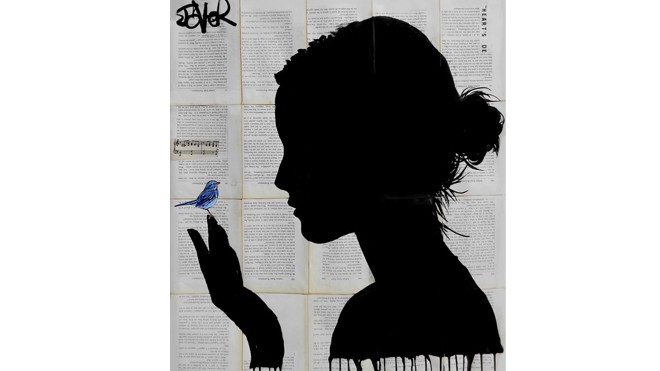
The barometer of freedom should be how rich a future a woman imagines for herself, how high her glass ceilings are, and how loud a voice she has when it comes to negotiating her place in society

Society will wait with bated breath for her to stumble, fall and serve as a warning for other aspirants: The free woman, a mythical creature, the mad demon going against the tide, tempting fate… What lies before her are infinite possibilities, the prospect of living a full life. We are terrified for her and of her.
We are all too keen to share stories of women who ventured out and fell off the face of the flat earth mysteriously into blackholes of ‘shameful’ ends and ‘nothingness’. No wonder then freedom, liberating as it is, can be scary too.
Once the training wheels are off, the world can be wicked or intriguing depending on what you make of it. For a conservative imagination, the free woman exercising her agency is the stuff horror stories are made of. This idea is instilled in women from an early age and they grow up in fear of their own agency, their status as human beings struggling to reconcile attributes that apparently seem to be at odds with each other.
At most, as a society, we have begun to allow women to be watered down, diluted versions of their male counterparts. When we as a society allow women to be somewhat ambitious, it is not without the hope that they read between the lines and strike a balance somewhere -- be good, generous losers with warm, generous smiles. Intelligence and wit may be highly likeable traits after beauty and charm, but should be a flattering compliment to men.
On why women ‘appear’ while men ‘act’, John Berger says in Ways of Seeing that "Women watch themselves being looked at". He further explains how the relation that women have with themselves is strongly rooted in gender power relations.
"The surveyor of woman in herself is male: the surveyed female. Thus, she turns herself into an object -- and most particularly an object of vision: a sight."
The male gaze, thus accompanies women everywhere they go and that too from an early age. "She has to survey everything she is and everything she does because how she appears to men, is of crucial importance for what is normally thought of as the success of her life," writes Berger.
It gets more absurd.
Read also: To inquire and question
While men are free to make and enforce norms that give them free agency, women are left to choose from a limited set of options largely defined and picked out for them by men. Even as far as religious text goes, men have the power to interpret these and determine what a woman’s way of life should be.
A woman’s body, in this respect, becomes an object once again loaded with symbolism. How she covers it is a reflection on her family and society at large. The ongoing debate on the ‘hijab’ is a case in point; male politicians and members of the clergy are more than eager to transfer the burden of ‘preservation of culture’ onto women.
Moving past the baggage of colonisation, and now adjusting to post-colonial globalisation has affected the way our society is coping with change; women and women’s bodies have become a means to reassert tradition and patriarchal norms, by which society feels it has reclaimed some semblance of social stability.
There is a general sense that true freedom will have to come from within the existing patriarchal structures gradually, crumbling at the rate of one small inconspicuous blow at a time. This can also translate into specific actions, such as wearing a veil solely motivated by concerns relating to mobility and participation in public life.
Such cases can be extremely confusing because they end up looking like a crude form of barter rather than a push for freedom and asserting presence in public spaces. In a sense, one kind of freedom is traded in for another; subverting one kind of restriction or barrier by yielding to another expectation.
While maneuvering through potential barricades in the way of progress and empowerment, there is the added challenge of patriarchal structures raising women with a view to preserve and maintain systems dictating the limits of their agency. Rather than understanding the injustices meted out to their gender and putting up a fight, women find themselves perpetuating inequality and discrimination -- at times unknowingly too.
Thought -- if it is free -- is inherently blasphemous to dogma, to gendered expectations; it is irreverent and rebellious. Thought does not care. It just is.
Compliance and conformity has to be taught on the other hand, reinforced through implicit and explicit rewards and punishment.
The buoyancy of patriarchy to a great extent is rooted in a dystopian imagination of a world where women recklessly wander out of the kitchen and cause mayhem: Were they even meant to read, least of all, try to engage in political musings and debate?
For the longest time, female authors wrote under male pseudonyms just so their works weren’t written off as frivolous endeavours. While that has changed over time, our expectations of gender identities and roles are still more or less crammed inside the same boxes, out of a fear of losing touch with the ‘glorious past’.
As long as society’s political imagination is horribly limited and women figure into it not as equals but as an amalgamation of the values society holds dear, freedom will not be fully actualised.
The barometer of freedom, thus, should be how rich a future a woman imagines for herself, how high her glass ceilings are, and how loud a voice she has when it comes to negotiating her place in society. Nothing else even comes close.